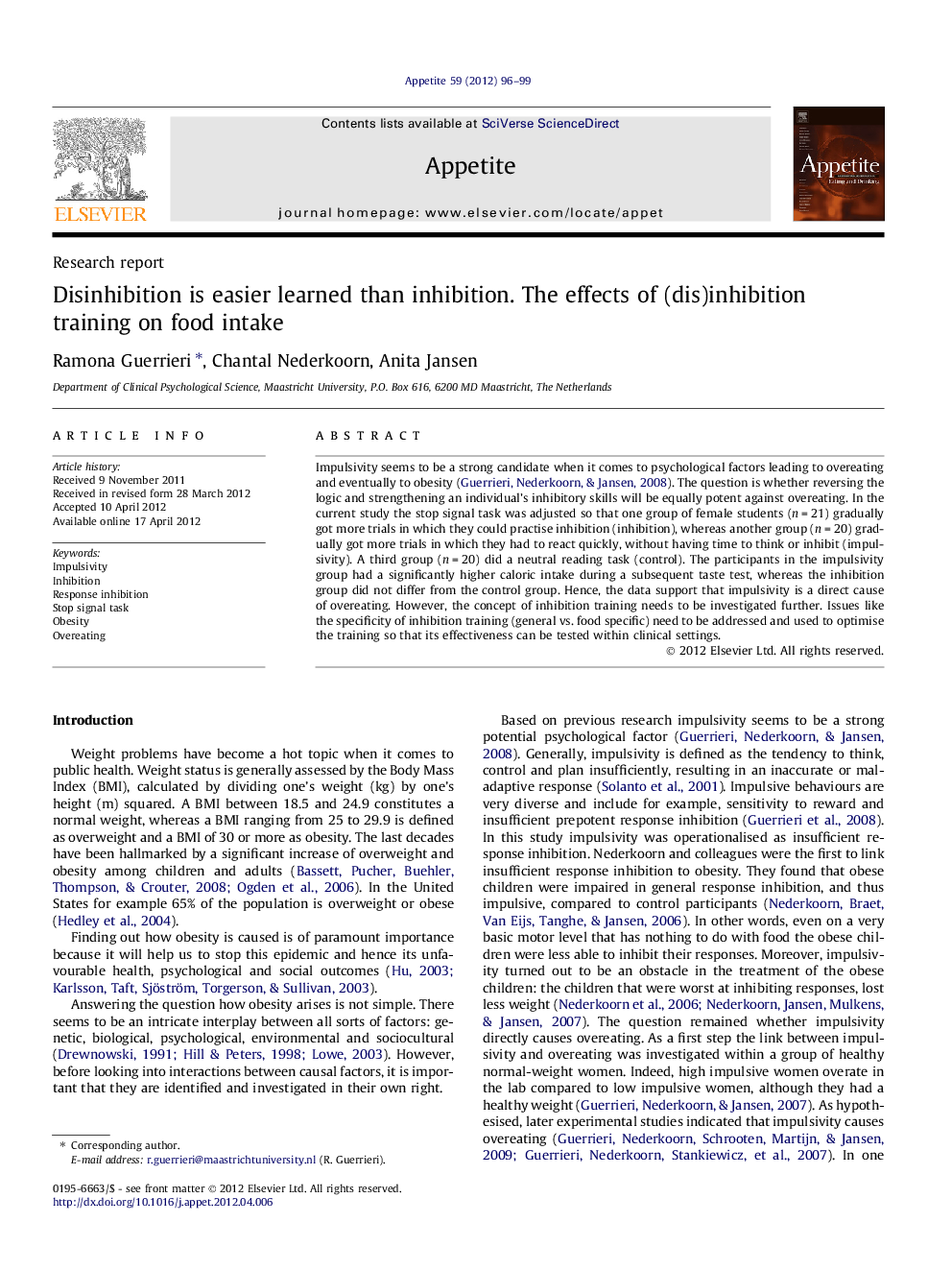| کد مقاله | کد نشریه | سال انتشار | مقاله انگلیسی | نسخه تمام متن |
|---|---|---|---|---|
| 940145 | 924883 | 2012 | 4 صفحه PDF | دانلود رایگان |

Impulsivity seems to be a strong candidate when it comes to psychological factors leading to overeating and eventually to obesity (Guerrieri, Nederkoorn, & Jansen, 2008). The question is whether reversing the logic and strengthening an individual’s inhibitory skills will be equally potent against overeating. In the current study the stop signal task was adjusted so that one group of female students (n = 21) gradually got more trials in which they could practise inhibition (inhibition), whereas another group (n = 20) gradually got more trials in which they had to react quickly, without having time to think or inhibit (impulsivity). A third group (n = 20) did a neutral reading task (control). The participants in the impulsivity group had a significantly higher caloric intake during a subsequent taste test, whereas the inhibition group did not differ from the control group. Hence, the data support that impulsivity is a direct cause of overeating. However, the concept of inhibition training needs to be investigated further. Issues like the specificity of inhibition training (general vs. food specific) need to be addressed and used to optimise the training so that its effectiveness can be tested within clinical settings.
► Impulsivity is a strong psychological factor leading to overeating and obesity.
► Training inhibition with a stop signal task should lead to less overeating.
► Training fast responses without thinking should lead to more overeating.
► Training fast responses indeed leads to overeating.
► But training inhibition does not lead to less caloric intake in the lab.
Journal: Appetite - Volume 59, Issue 1, August 2012, Pages 96–99